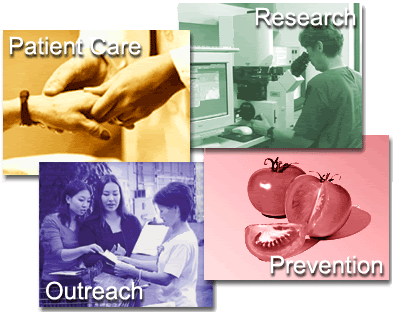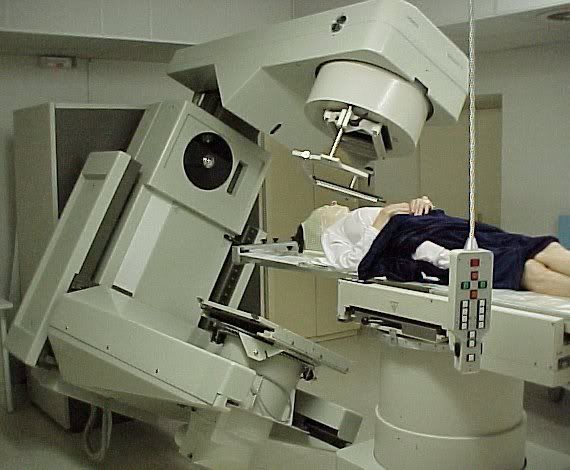Relationships Between Stressors, Work Supports, and Burnout Among Cancer Nurses.
Cancer nurses are a valuable resource, and retention of cancer nurses is vitally important. These nurses are crucial to patients who rely on well-trained, experienced, and clinically competent healthcare professionals to support them and their families through the challenges and complexities of a cancer illness and perhaps death. Cancer nurses are also a valuable resource within the healthcare system, and recruitment and retention of cancer nurses should be a priority within an economically constrained health environment. The cancer-care health milieu has to contend with increased patient acuity, increased comorbidities, and increased technology and complexity of care-and cancer nurses are in the "front-lines" dealing with these issues.
For the past 3 decades, cancer nursing has been acknowledged as a particularly stressful occupation. Causes of stress often include complex healthcare states and comorbidities, increasing patient acuity, patients' expectations of care, technological advances requiring increasingly sophisticated nursing skills, decreased length of hospital admission, and the necessity of dealing with the dying process. Previous literature has largely focussed on the support needs of patients with cancer and/or their families; however, more recently, attention has focussed on "caring for the caregiver," that is, the support needs of health professionals such as cancer nurses. It is important to identify the stresses within cancer nursing in order to support and retain this precious resource.
This article reports on a small pilot study investigating relationships between work supports and stress/burnout experienced by cancer nurses in Australia. We did not attempt to examine the general coping strategies of cancer nurses but, rather, viewed work supports as a type of coping. "Burnout" may be defined as: "a mental or physical energy depletion after a period of chronic, unrelieved job-related stress." It also refers to patterns of emotional exhaustion and cynicism. It is an indicator of chronic stress.
Stress is said to occur when the demands of one's work environment overwhelm one's coping resources. Social support (occupational work support) may be viewed as a coping resource or strategy that protects the individual against stress consequences, such as absenteeism and low retention rates. Burnout is another potential reaction to work-related stressors. Furthermore, it seems that "professional support" (or lack thereof) is an issue for oncology/hematology nurses. We investigated the work supports available to cancer nurses.
Discussion
Cancer nurses are a valuable resource. The future of cancer nursing services is linked to the recruitment of newcomers to the profession, and also to the retention of experienced and qualified cancer nurses who are happy and satisfied in their vocation-these are the nurses who can provide high-quality nursing care to patients with cancer. Earlier works have focussed on the experiences of patients with cancer. More recent studies highlight "caring for the caregiver" (including support for health professionals) and a shift in focus of organizations themselves toward a culture of more supportive (and resource-focussed) workplace environments. This study offers a new contribution to the literature because it fills a gap in our knowledge of stress within cancer nursing and places it squarely within the context of the economically constrained healthcare setting. There is a dearth of literature focussing on stressors, work place supports, and burnout within cancer nursing-this study contributes to our understanding of these issues and furthermore investigates the relationships between these key variables.
Stressors
All 50 listed stressors had been experienced as a source of stress by more than 50% of the sample, and 12 items were rated as stressful by more than 90% of respondents. Thus, the cancer nurses shared similar experiences with regard to stressors. Two items in particular had been experienced as a source of stress by almost all nurses: "When nurses and doctors are not communicating well about patients," and "Feeling I can't get all of my work done." Both these themes are recognized as common sources of stress for both general and oncology nurses, and both items rank as "high stressors" in comparable studies.
The importance of positive nurse-doctor collaborative relationships is well acknowledged, and it has been found that constructive working partnerships between cancer nurses and doctors have been linked to high-quality patient care. However, strategies to promote or maintain good interdisciplinary communication are not clearly defined in the relevant literature. In order to identify strategies to encourage productive and patient-focused work relations, the nursing/medical context may need to be taken into consideration, particularly in specialty areas such as terminal/palliative care where aims and treatment options may vary and potentially be in conflict, as per the patient's changing nursing/medical needs. There is some consensus in the debates that nurses and physicians may both need to change and challenge their attitudes and perspectives, in order to promote shared decision making. More specific strategies to enhance collegial care planning include "nurse-doctor co-leadership" approaches and efforts to enhance nursing participation in specific situations, for example, during combined nursing/medical ward rounds.
With regard to "Feeling I can't get all of my work done," the "additional support" comments reinforced the finding that workload is considered too high; for example, "More assistance-too much work for one person" was a typical response reported. In terms of strategies to reduce the workloads of cancer nurses, there are common themes among the debates. As a starting point, it is argued that what is needed is the development of "workload models" to appropriately determine/measure the workloads of cancer nurses, taking into account the multifaceted clinical, supportive, and educational aspects of the cancer nursing role.
The 2 major strategies to deal with heavy nursing workloads have been identified as "providing support" and "ensuring adequate staffing." It is argued that workplace support services should be preventative and proactive, rather than being a passive response to a stress crisis. It is also asserted that issues such as "lack of time" (particularly lack of time to spend in direct patient/family contact and communication) and "shift work/rosters/nightshifts" are important aspects of nursing workloads which need to be addressed to reduce nurses' stress.
Work Supports
Most work support came from peers, followed by supervisor support; less support came from the organization. The results concur with those of Brown and Edelmann, who found that the main work supports of newly qualified general nurses were nursing peers, use of a mentor, and support from a ward sister/charge nurse. This is consistent with earlier findings that "depending on a senior nurse" was a mediator commonly identified by pediatric oncology nurses, and as such may serve to protect against stressors. Most support was categorized as "informational," followed by "emotional' support." The former refers to advice, suggestions, or information that respondents found useful, whereas emotional support refers to feeling valued and others showing concern and listening. Informational support, in particular, serves an important function for the cancer nurses. The majority (27.1%) of comments made by respondents in asking for additional support from the organization referred to further nursing education, which may be related to a need for more informational support. It has been suggested that the organization/institution is responsible for developing strategies to reduce stress among cancer nurses; further research is needed to clarify the support (level and types) that is required by oncology nurses from the organization.
Burnout
Overall, the nurses reported a "moderate" degree of work-related burnout. These results are similar to the study by Catalan et al. Their respondents were "moderate" on each of the 6 dimensions of the MBI. In comparison, our participants scored higher Personal Accomplishment (intensity), which refers to more intense feelings of competence and successful achievement in working with people/patients/relatives-indicative of lower burnout as per the MBI. Overall, the findings indicated a comparable level of burnout to previous studies.
Relationships Between Stressors, Burnout, and Work-related Social Support
It was hypothesized that level of burnout would be mediated by level of perceived work support. Overall, the results do not support this hypothesis. The only significant correlation found was a weak-moderate positive correlation between Peer Support and Personal Accomplishment (Intensity). Peer support may reinforce "feelings of competence and successful achievement in one's work with people," which, in turn, would be related to lower burnout. This would imply that providing more peer support may assist in lowering burnout, a conclusion complemented by Kilfedder et al, who found that higher levels of personal accomplishment for psychiatric nurses were associated with greater availability of social support. It is also claimed that peer support may have a positive influence on the retention of oncology nurses, and, in general, newly qualified nurses find that experienced peers provide valuable support.
No relationship was found between level of perceived Supervisor support and level of burnout. Regardless of this finding, it is still evident that oncology nurses consider that support from a supervisor is important, and "Conflict with the supervisor" has been cited as a frequently reported reason for proposing to leave cancer nursing. Similarly, no association was found between organizational support and burnout. These results are in contrast to those of Jenkins and Ostchega, who found that the availability of psychological support for oncology nurses-in particular, support by the organization-was negatively correlated with burnout. It is still notable, however, that respondents made 59 comments asking for further support from the organization; therefore, it can be assumed that support from the organization was important to this sample of cancer nurses.
There are several limitations to this study. The sample size is adequate, but the response rate of 56% limits the generalizability of findings. Also, the small number of males in the study limits analyses of data regarding gender, although this is reflective of the gender imbalance in the cancer nursing workforce. Further refinement of measures is required, for example, with regard to the demographic question asking for details regarding "Current position"-this question yielded limited data.




0 Comments:
Post a Comment
<< Home